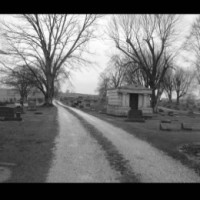I had a curious experience today while reading Ned Randle’s recent collection, Running at Night.
The poems first came to me on kindle as I waited for the hard copy to arrive. In the electronic universe the words in Ned’s poems were fleeing, much like the fleeting world of Facebook where everything grows old in an instant.
The package opened, the paperback in my hands, I sat down to the physical reality of the poet’s world and I found, for reasons I can’t explain, a tangible poetic reality that had eluded me when the words rolled across a display screen. The black and white of print is a reality different from the black on white of a kindle display.
I read and re-read the poems, discovering in their position on the page a hot experience so far removed from the cool and distant, and to me, off-putting transience of binary code. These poems are true, visceral at times, and always controlled but with an erotic and hidden intensity that speaks, as so much good poetry does–and always will–to the power of love.
I know the poetry in Randle’s writing should be independent of the medium, but for here, for now, for me this collection in print is more personal and powerful with its echoes of a life and lost love:
He conjures up a prayer but lets it fall
unspoken onto the sod, into the
soil, jealously hating heaven after
death where strange souls are urged to love his love,
and briefly hoping for hell for her, where
no love survives the crucible, where she
melts in the heat of his lust forever.
Technically, Randle’s lines carry the entire history of English prosody from the three part alliteration of Anglo Saxon epics (Randle is fond of turning the line for the third beat to carry rather than break it at the hemistich) up to the caustic insights of Pound and the post-modern spasms of Eliot. There are surprises here laced with little tags of technique such as this fragment from Across Their Table She Looks at Him where the enjambement spinning out of a preposition speaks reams:
when younger, she dreamed of a man
filled with the four humours–
rather than steel and iron and copper and coal–
who would slip into her bed and into
her, not with the precision and purpose
of a useful man, but with the awful useless
abandon of a man on fire for her.
Randle’s Running at Night is a mature book of mature poems that the experienced mind will revel in. These poems deserve to be studied in depth to reveal all their intricate and sometimes hidden rhetorical patterns.
peoms, poetry, Running at Night
